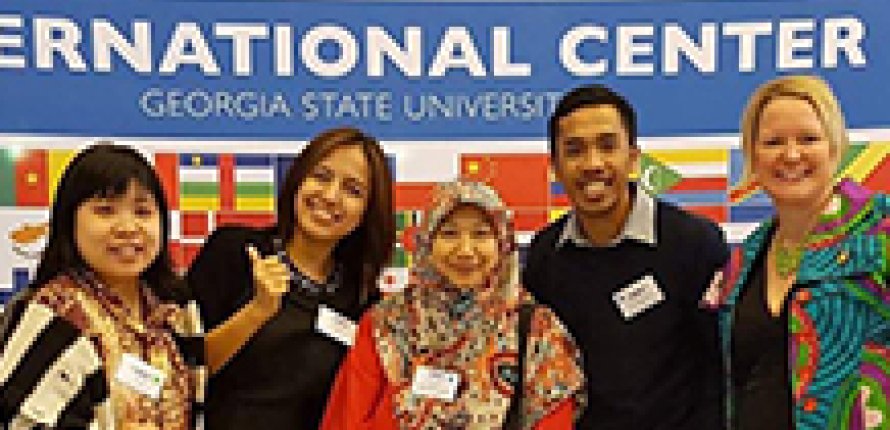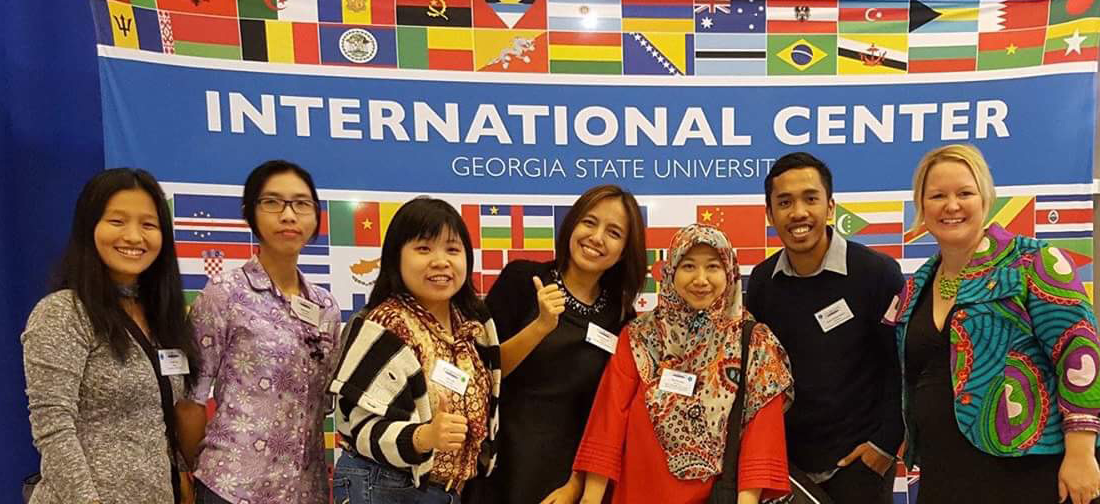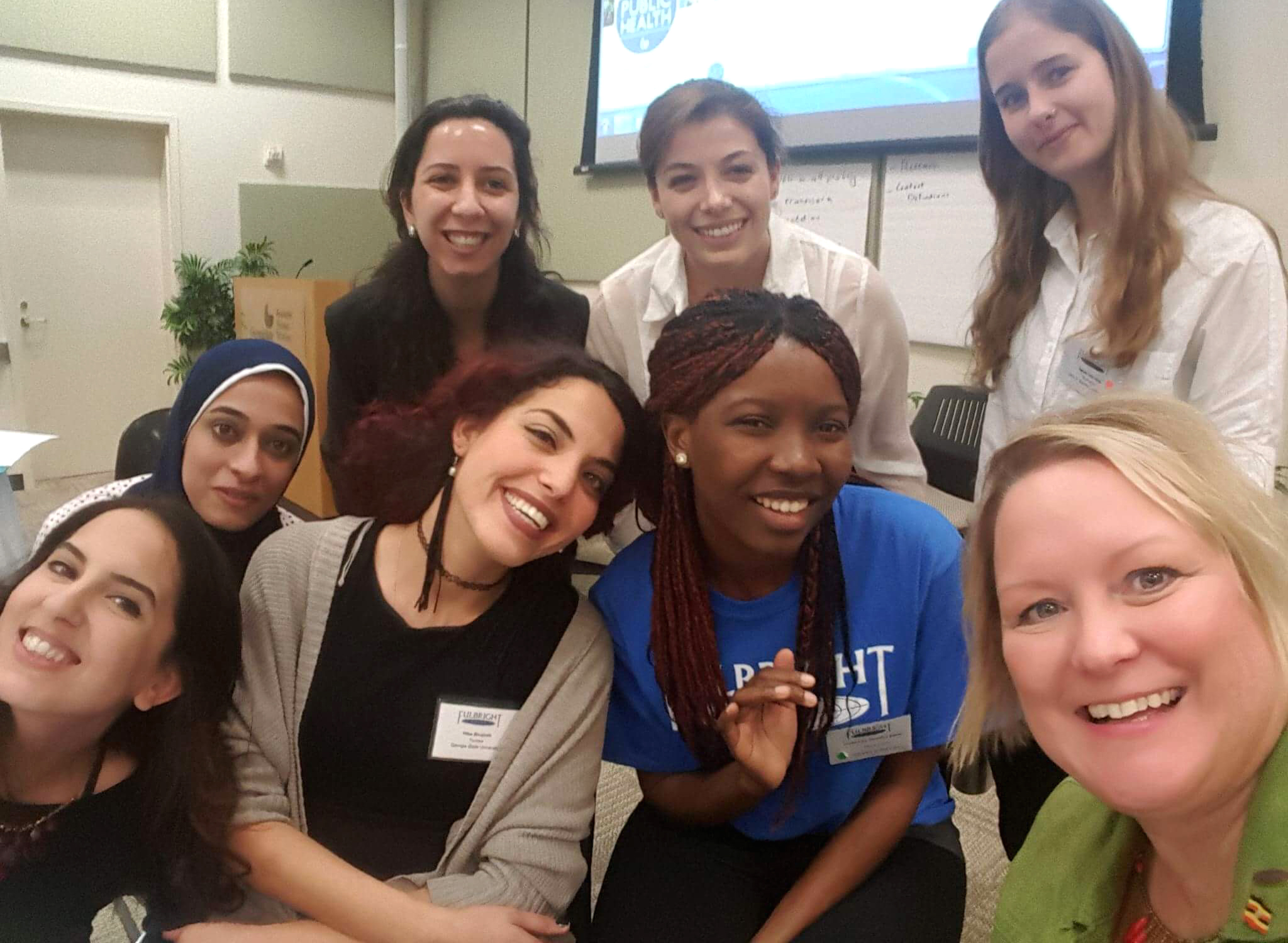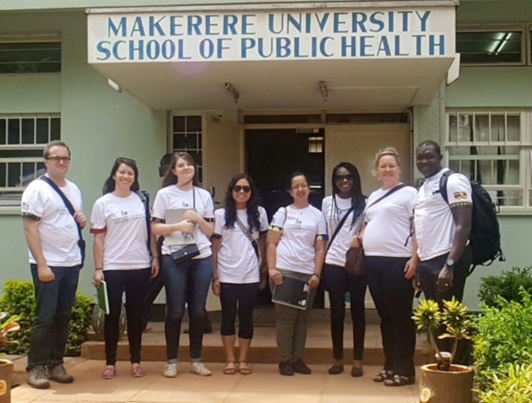3 Ways I’m Leveraging my Fulbright to Make an Impact

Monica Swahn, Professor of Public Health, Georgia State University
2016-2017 Core Fulbright U.S. Scholar to Uganda
As I am in the middle of my second Fulbright U.S. Scholar Flex rotation (out of three) at the School of Public Health at Makerere University in Kampala, Uganda, I have reflected on the many opportunities to serve more deliberately. This summer, my collaborators and I will seek support and funding for our proposed Alcohol and Drug Research Centre. And, while this project is the cornerstone of my Fulbright activities, I have had the opportunity to contribute in three other ways these past few months to create synergy and leverage the impact of my Fulbright award.

1. Training Other Scholars
This spring, my home institution, the School of Public Health at Georgia State University, hosted a Global Health Symposium for approximately 100 Fulbright Foreign Students in the United States. As a global health professor, I had the opportunity to train a third of them on health systems and public health infrastructure during the four-day symposium. For me, this was an extraordinary and powerful experience. I felt a great connection with these scholars, perhaps because of our shared commitment to service and our shared vision to foster international partnerships to support global health advances.

2. Connecting Students with Partners Overseas
I taught my graduate Global Health class at Georgia State University this spring, as usual. But, this semester I had more than the typical number of international students, including a Fulbright Foreign Student from North Africa. To capitalize on their international perspectives I organized their term projects to include collaborations with my African partners. All the students worked on real projects to benefit organizations in need of their expertise and skills. My Fulbright student, as an example, worked with an international organization to create a policy brief on alcohol and harm in Uganda contributing to the limited resources available to those working in the alcohol field.

3. Leading my Students on Study Abroad
Over the past two years, I have taken classes of Georgia State University students with me to Uganda for a three-week study abroad course that I teach on alcohol and harm (violence and HIV). This class is technically not affiliated with my Fulbright activity. However, given the overlap in the course topic, the class creates great synergy with my Fulbright goals. As an example, we have guest lecturers from Makerere University teaching our students on alcohol issues. We also open some of our activities and my lectures to local community members interested in building their expertise and capacity for alcohol research and programs. As such, we build capacity and strengthen the network of people and organizations that will continue this work and to amplify our reach in alcohol prevention. This is really a life changing experience for our students as evidenced by the quotes in the blogs they write for the class. Here are a few quotes:
- “My time in Uganda has been marked by so many incredible experiences that I have a hard time believing it has all been real and not some elaborate, fantastic dream.”
- “I can honestly say that these experiences and lessons could not have come at a better time in my life. For that, I am extremely grateful and look forward to the incredible amount of growth and understanding of the world and myself.“
- “I have grown so much as a person because of this trip and I am sure there are more changes to come.”
- “Every day is a learning experience. I find that this journey is beyond an opportunity for me to explore additional interests that I have in alcohol epidemiology.”
I have found that these three activities have been very beneficial to reaching my Fulbright project goals and also amplifying and enhancing several key activities. So, my advice to others tackling important issues as part of their Fulbright assignments, is to look for opportunities, even in unexpected ways, to create synergy and leverage the impact of their activities. Global health work is inherently difficult, so any strategies we can use to streamline, reach more people, or delegate some tasks or meet our goals in other ways, will propel us forward. I am very grateful every day for these opportunities and for being surrounded by committed and talented people who share my vision, because as the African proverb states, “Wisdom is like fire. People take it from others.”
